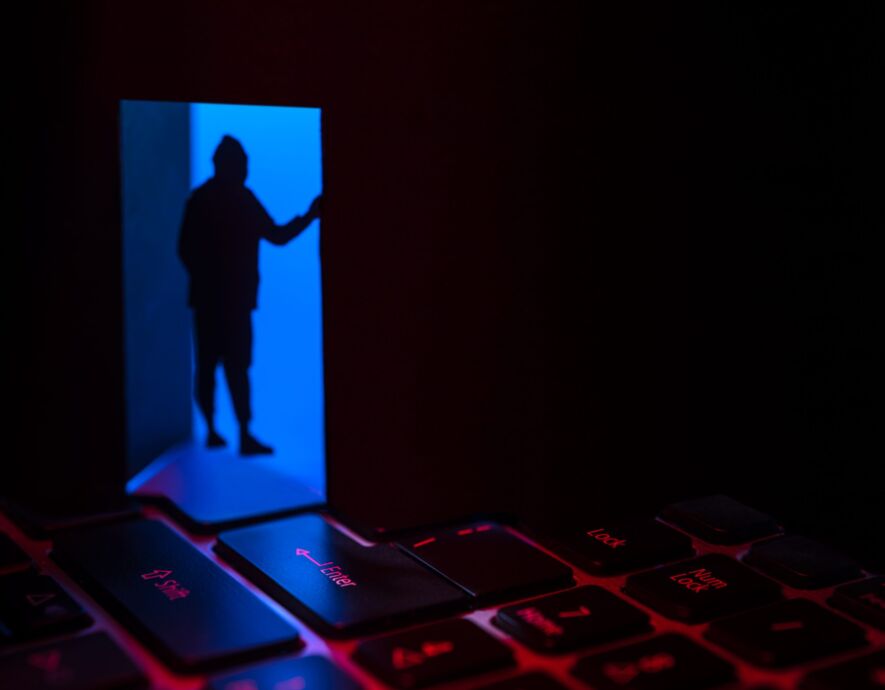
- Home
- Cybercrime
- Crime of spreading fake news: “China has always wanted to introduce this offence”
Crime of spreading fake news: “China has always wanted to introduce this offence”


While the United Nations has been working on a Convention against Cybercrime, China has been trying to incorporate the crime of spreading fake news into it. Even though this Orwellian provision has been put to one side for the time being, there is still a risk it could return to the table, says Karine Bannelier, a legal expert who is following these negotiations closely.
In mid-January 2023, Beijing proposed that the United Nations Convention against Cybercrime include the crime of disseminating false information “that could result in serious social disorder, including but not limited to information relating to natural or human-caused disasters”. This is a highly controversial and politically charged topic that inCyber looks into with Karine Bannelier, Associate Professor of International Law, Director of the Cyber Security Institute (CyberAlps) at the University of Grenoble Alpes (UGA), Senior Fellow on Cybercrime for the Cross Border Data Forum (CBDF) and Director of the UGA/Paris-ILERI Master’s in International Security, Cybersecurity and Defence.
As the representative of the Cross Border Data Forum in the negotiations within the “United Nations Ad Hoc Committee for the Adoption of a United Nations Convention against Cybercrime” since 2022, Bannelier has had a ringside seat to follow the progress of this strategic Convention for the cybersecurity sector.
First, the good news. The Chinese proposal to include the crime of fake news in the UN Convention against Cybercrime appears to have been ruled out. Is this decision final?
We cannot say that it has been definitively ruled out. The fact that some countries were opposed to it does not mean we can jump to conclusions about the final outcome. What was important at this stage was that countries showed that there was no consensus on including such a proposal in the Convention.
This was crucial because in Vienna [where the negotiations are taking place, ed.], we were in the fourth session, during which they start to draft the first chapters. The objective of the first three days was to split the articles into two groups: those on which there was some degree of consensus, which would progress in the drafting process in the plenary session, and those on which there was no consensus, which were relegated to informal groups.
What is their role?
The articles in the informal groups are discussed by member countries to see if any of them could be reintroduced into the Convention at a later stage. There are many cybercrimes where there is no consensus, but this does not mean that they are permanently ruled out. Some countries may want to try to reintroduce them in some way.
How did Beijing try to pass its proposal on fake news?
This Chinese proposal came after the three days sorting the articles that I just mentioned. It was therefore inserted into the document next to the articles on which there was consensus, which was extremely problematic.
It was quite interesting to see how this insertion happened at that time; in my opinion, it was not a coincidence. Given that China had already raised this proposal, the “normal” process would be to propose it ahead of the fourth session so that it could be discussed like the others, to decide whether to keep it in the first group or not. But they did not do that. And I think they knew what they were doing.
The process is understandable, as is the reaction of other countries
The reaction was all the more expected because for the moment, in the ad hoc committee, we are working on the basis of consensus, and that is how we will try to adopt the Convention. However, if no consensus can be reached, it could be adopted by a two-thirds majority, in which case the final outcome is not entirely predictable. Countries will negotiate and, in cases like this, there is always a bit of give and take: some will want to see this article included, others will want to see that provision removed. We will need to be on our guard until the end.
The title of the crime proposed by Beijing (dissemination of false information “likely to cause serious social unrest, including, but not limited to, information about natural or man-made disasters”) is reminiscent of the social unrest in China after its government imposed an extremely harsh Covid policy. Do you see a link?
You could turn this around and say that China has always wanted to introduce this offence and they are using this link with Covid to try to put it back on the table. China was already talking about it in 2021, even before negotiations on the UN Convention on Cybercrime started. There was already a possible link to Covid in 2020 or 2021, but I think this is a much deeper problem.
And we have to be fair about it; this is not a problem that only China is having to deal with. Fake news is a problem facing every country today. Tackling it is extremely important for stability. Some fake news is highly destabilising for democracies, which in my opinion are fundamentally based on the quality of information. These challenges are so great that in June 2022, the European Union adopted a Code of Practice on Disinformation.
This goes far beyond the European Union…
Yes, a whole raft of Western democracies, members of the Council of Europe or the European Union, have adopted laws in this area. But they also know that this is dangerous as these laws can be extremely draconian and repressive against freedom of expression. When the European Union adopted its Code of Practice on Disinformation last June, Věra Jourová, Vice-President of the European Commission for Values and Transparency, stressed that we had to be very careful, because a text like this could easily lead to censorship measures.
We must therefore take great care with all the safeguards and control measures that will be introduced so that this fight against disinformation, which can be extremely damaging for democracies, does not become a threat to freedom.
To come back to the work of the United Nations, I think it is important to emphasise the risk associated with introducing this type of crime into a convention to fight against cybercrime: it could be manipulated and used to undermine freedom of information.
the newsletter
the newsletter

![Image Europol Head of Operations discusses [dismantling of LockBit]](https://incyber.org//wp-content/uploads/2023/12/incyber-news-water-cybersecurite-cybersecurity-885x690.jpg)
